'Lady Bird': Greta Gerwig on Why a Screenwriter's Job is to Listen as Much as to Write
Greta Gerwig may be a new director, but she knows a thing or two about movies.
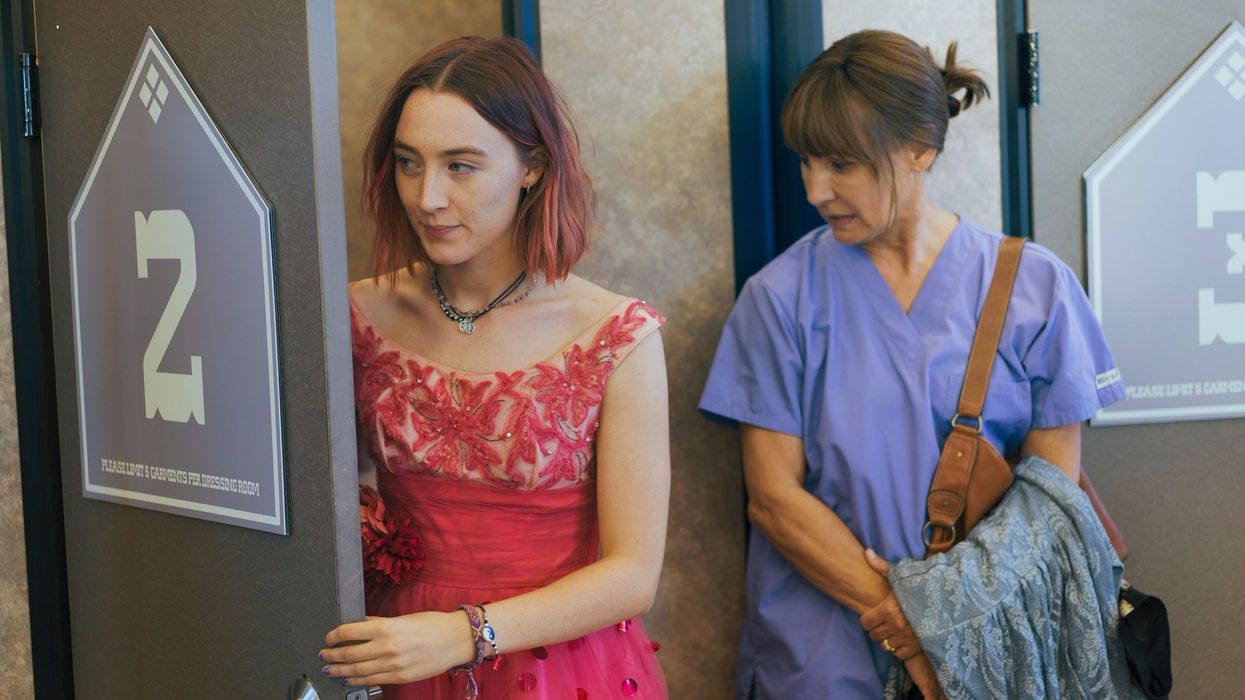
Greta Gerwig first came onto the film scene as an actress associated with New York City's mumblecore movement. She was cast in a small part in Joe Swanberg's LOL in 2006, while she was still a student at Barnard College. Though her career successes pulled her towards acting, Gerwig's original and prevailing dreams were behind the scenes. She had gone to Barnard with the intention of becoming a playwright, and now all these years later, she's finally taken the plunge.
"When I finished the script I was like, 'you've always wanted to do this, you're not going to get any more information, you just gotta jump.'"
Lady Bird is Gerwig's first directorial work, and it's strikingly personal. The film resonates with a soulfulness that is in part due to Gerwig's leadership, but also due to the phenomenal acting presences of Saoirse Ronen and Laurie Metcalf. It's clear from the film's steady hand that Gerwig's long-gestating directorship was well worth the wait.
At the film's New York Film Festival premiere, Gerwig discussed her craft, her love of Sondheim, and why cell phones are just not cinematic.
Write in bulk, then listen to your characters
Though she doesn't know definitively how long she spent writing Lady Bird, Gerwig does know that she had "a very long draft of this movie" in December 2015. When asked what "very long" means, the director replied, "It was about 350 pages. There were a lot more dances."
"Some of the scenes didn't go anywhere," she explained. "It wasn't like 350 pages of something that was narratively cohesive. It was 350 pages of stuff that I then looked at and figured out what felt like the core of the story to me."
Describing her process, Gerwig said that she doesn't decide what a story's about before writing it. "I write to figure out what the story is," she said, "and I think that the characters end up telling you what they want to be doing, and what is important to them. So, in some ways, your job is to listen as much as to write."
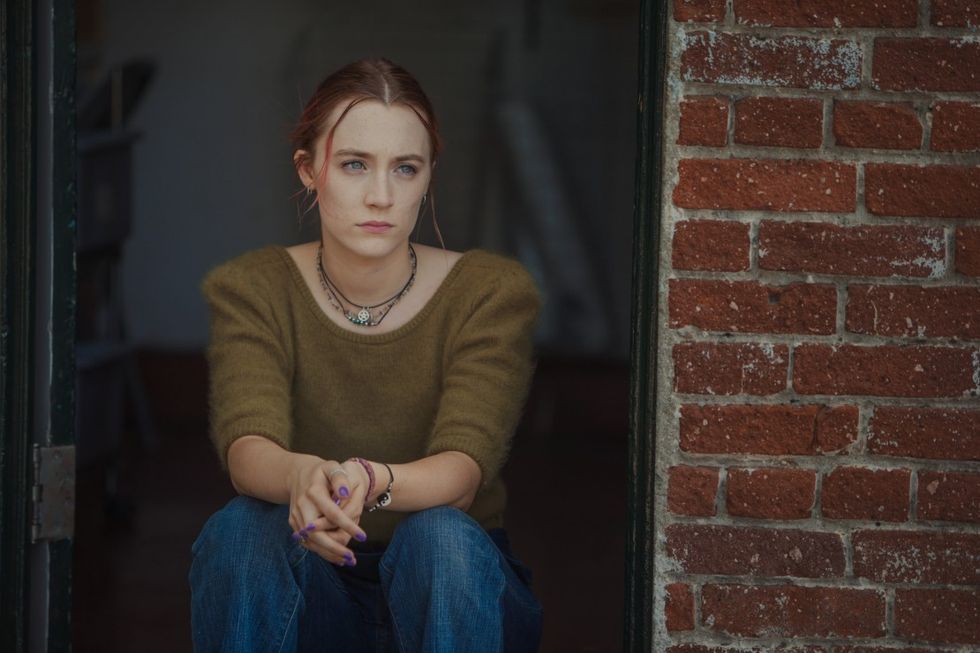
Saoirse Ronen's emotions are always at 10
"I didn't have her in mind while I was writing," Gerwig recalled, but it quickly became apparent that she was perfect for the role. The two met at Toronto Film Festival after Ronen had read and adored the script. "We sat in her hotel room and she read all of Lady Bird's lines, and I read everybody else's lines, and I knew within the first two pages that she was Lady Bird." Gerwig laughed, "but I selfishly wanted to hear it all out loud."
"Saoirse's such an incredible actress. There was something about the way she did it, it was instantly different than the way I had heard it in my head." Gerwig liked her because of the intensity she brought to the role. "She just has this way of being always emotionally at 10, that it made it so much funnier because there was a lot of sincerity. She never played the joke with quotes around it, she always played it from the inside. It made everything vivid in a way that I had always hoped for."
"I've been working in film for twenty years and I've done every job that I could do."
Laurie Metcalf's kid is trying to kill her
In fact, Gerwig is in love with all of her actors. When asked about Laurie Metcalf, she responded, "She's a genius." She described seeing her perform on stage, and leaving the theater thinking, "never in my life have I seen anything like that unfolding in front of me."
Luckily, when Metcalf was passed the script, it spoke to her. The two women talked on the phone and Metcalf said, "currently I have a seventeen-year-old child that's trying to kill me. So, I think this exactly what I need to be doing right now." Hey, motherhood is hard!
Of watching Metcalf and Ronen work together, Gerwig said, "It was like watching two heavy-weights."
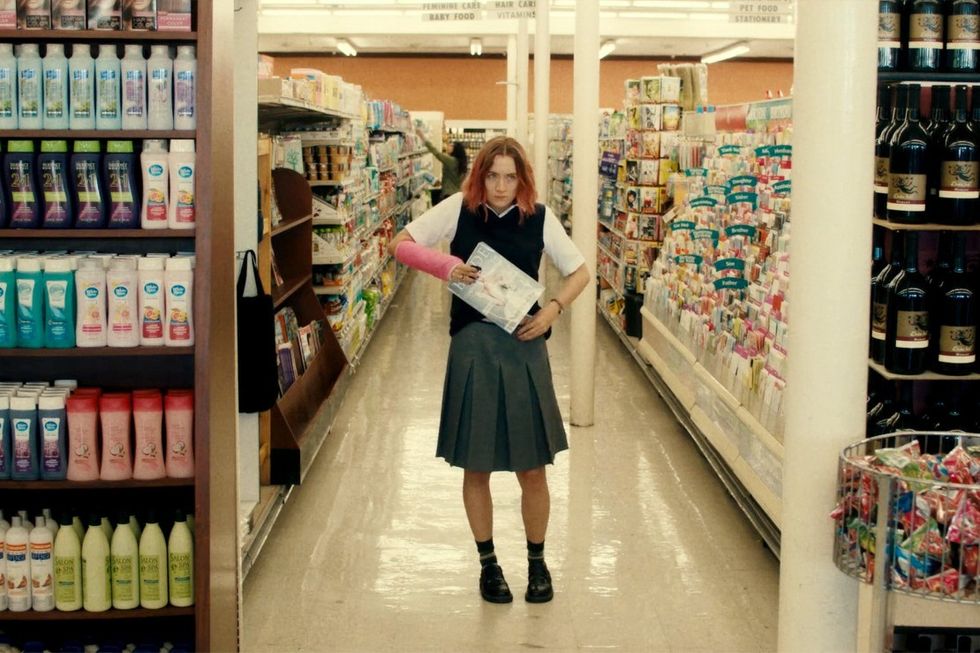
When you can channel Barbra, do it
In response to a question about the song 'Everybody Says Don't,' which appears in the film, Gerwig said, "Well, I'm a big Sondheim fan clearly."
"I've always loved that song and I thought that it spoke to where Lady Bird was at that point, always feeling like everywhere she turned she couldn't move." She added that it was just so funny seeing Ronan perform the song. "She had been listening to the Barbra Streisand version a lot, so in a way she was sort of channeling Barbra which... I mean, that's enough to make a movie right there."
No film school required
"I always wanted to direct," said Gerwig, "but I didn't go to a proper film school."
So, in order to learn the industry, she paid her dues on set. "I've been working in film for twenty years and I've done every job that I could do. I've written, co-written, held a boom, edited, costumed, I even applied powder. In a way, I felt like I was gathering my Gladwell 10,000 hours."
But there are only so many hours you can practice before you have to take the dive. "When I finished the script I was like, 'you've always wanted to do this, you're not going to get any more information, you just gotta jump.'"
"And I loved doing it, it was a wonderful experience." But that doesn't mean she's going to quit acting. "I hope I continue to be able to act in projects that I love with directors that I admire, and now that I've ripped the Band-Aid off, I think I'm going to keep writing and directing films too."
Acting is a great way to learn to direct
Gerwig feels that acting is a better way to learn to direct than some more traditional paths, and she has a good point. "Most directors are only ever on their own sets and they don't actually know how anyone else does it," she said. "I've been on a lot of sets and I've seen a lot of different ways relating to actors and crews, and have seen what works and what doesn't work, and I took all these ideas that I had been gathering over the years."
One example is something she stole from Mike Mills on 20th Century Women. "Little things like having crew wear name-tags every day, which sounds small, but actors, if you switch out the camera operator, they don't know who the new person is. You know, because you've talked to them, but they don't know."
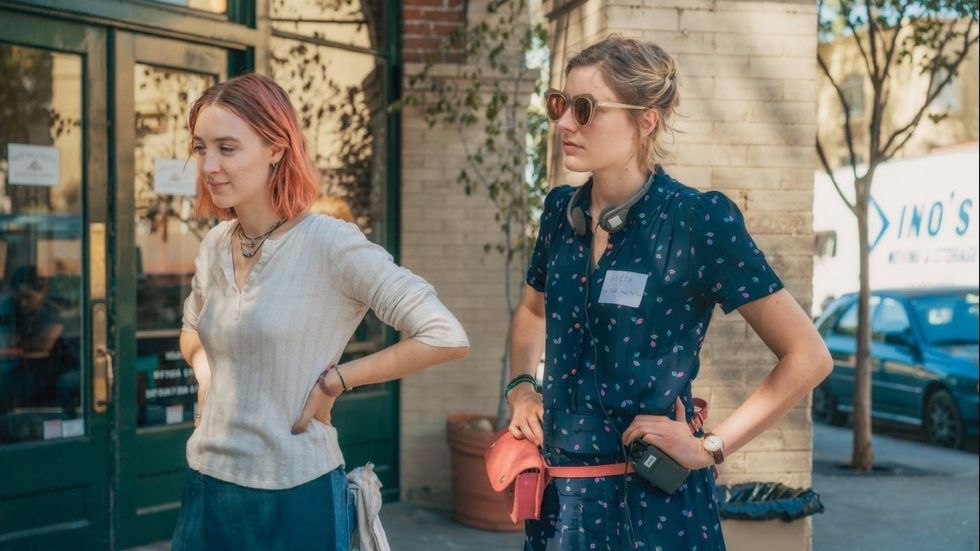
It's not as autobiographical as you might think
Despite taking place in Gerwig's hometown, at a similar time, nothing in Lady Bird literally happened to her. So, rumors of the film's autobiographical nature can be put to rest.
However, that doesn't mean it's not brimming with the director's spirit. "It has a core of truth that resonates with what I know."
She went on to describe what it's really about, for her. "I wanted to make a movie that was a reflection on home, and what home means, and how leaving home defines what it is for you, and your love for it."
"I wanted to write a love letter to Sacramento," she said, "and I thought, what better way to make a love letter, than through somebody who wants to get out, and realizes that they love it?"
In terms of the relationships in the film, "it's secretly the mother's movie and much as it is Lady Bird's movie." Gerwig mused, "I think that's the truth, somebody's coming of age is somebody else's letting go, and I was just as interested in the letting go."
Class is a major theme
Among these many themes, one thing Gerwig wanted to explore with her feature debut was class. "In America, something like 95% of people describe themselves as being middle class. And that's people who fall at the end of the poverty spectrum, and also at the very top. We are uncomfortable with class and how that works."
In the film, "Lady Bird's always looking up at other people, and meanwhile those people are looking up at others, and she doesn't see how much she has because in a culture of more, more, more, and always needing to get to the next level, there's no way that you can appreciate what you have."
She added, "It's not explicitly stated but I would guess that her best friend Julie looks up to her, and thinks that she's got it, that she's perfect. She's got a house, two parents, she's okay."
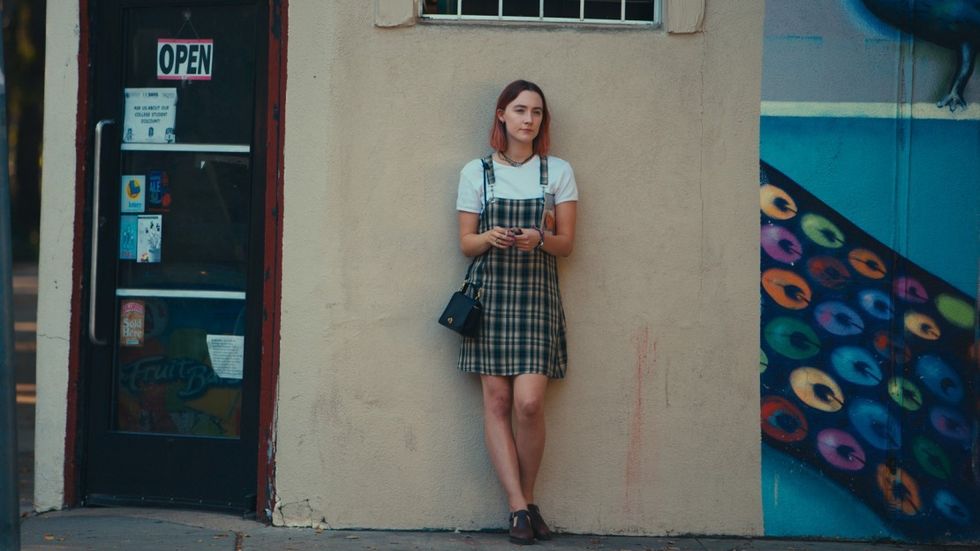
Cell phones are just not cinematic
Lady Bird takes place in the early 2000s, a very specific time period choice. "I wanted the film in a post-9/11 world, at the beginning of our invasion into Iraq, because I felt like this huge thing happened and we were ushered into a new age of global politics almost instantly."
Gerwig further explained her choice. "Everything was shifting, and we knew it was shifting but it was almost in a way invisible. There's a sense sometimes in movies that your personal life happens over here and politics happens over here, but that's not the way that anybody lives. Everything comes together, you're living through the historical moment at the same time as you're dealing with your children or your work or whatever is going on in your life."
And, she added, "to be dealing with teenagers now you have to shoot cell phones, and so much of their lives happens online, and I don't think it's very cinematic. I felt like in a weird way this was the last generation you could make a film about without doing that.











